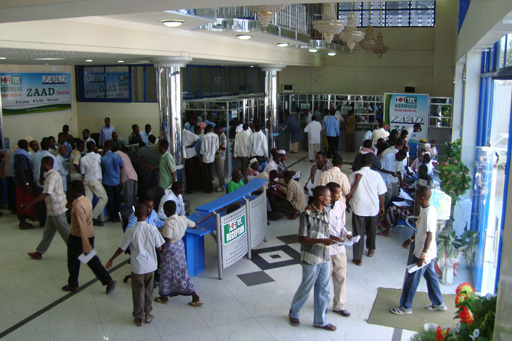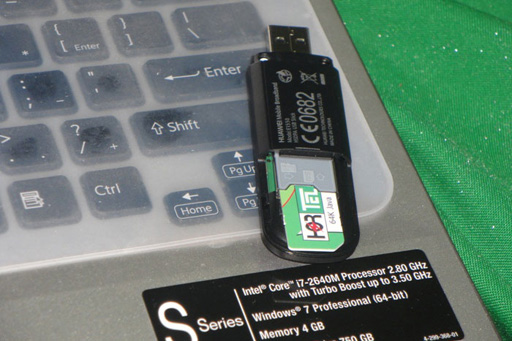
Monday, January 07, 2013

The Hormuud Telecom customer service office in Mogadishu bustles with customers on a recent day. [File/Sabahi]
The service was previously available in some parts of northern Somalia, but this is the first time a company is embarking on nationwide service. Hormuud's 3G network will be available in Mogadishu initially and will expand to other major cities in southern Somalia within one year.
For Somalia, which in 2000 was one of the last African nations to connect to the internet, this is an important development.
Announcing the service at the Shamo Hotel on December 29th, Hormuud chairman Ahmed Mohamud Yusuf spoke about the importance of the new technology to society. "This new service will provide high speed internet which will benefit students to learn, academics to research and the entire public to connect to the world through multimedia platform," he said.
Hormuud marketing director Abdihakim Hassan Idow said more than 150,000 customers in Mogadishu signed up for the 3G service, which offers access on cellular devices to streaming audio and video content, video chat and high-speed data transfer.
Hormuud was the first company to provide mobile internet access in 2011, and the introduction of 3G service provides faster access and improves on the previous technology.
"Our company offers customers services that include mobile money transfers and USB modems for broadband access in certain African and Arab countries," Idow told Sabahi. "We expect this service to meet the high demand for internet access of students, journalists, ministries, relief agencies, medical institutions, universities, private companies, offices and for conference [venues]."
Idow said Hormuud sells USB modems for about $50, which can still be a high price for Somalis, who are using the internet with increasing frequency.
He said the number of 3G subscriptions continues to rise and he expects the technology to eventually dominate the local market.

USB modems allow computers to access the internet using Hormuud's 3G network. [File/Sabahi]
"The 3G technology is faster than ADSL and is unique in that it allows internet access in any place with mobile network coverage, making it the only option for those on the run," he said. ADSL, or asymmetric digital subscriber line technology, provides internet access via telephone lines.
Somalia's internet market
Economist Samira Mohamed Waeys said Somalia's internet market is experiencing competition among several telecommunications companies, including Telesom, SomTel, Golis, Telecom Somalia, NationLink Somalia, Global Internet Company and Hormuud Telecom.
Waeys told Sabahi that launching 3G service allows users in Mogadishu to browse websites at speeds as high as one megabyte per second in the city and its outskirts. The faster service will improve the flow information into the city and open up the capital to the world, she said.
Farhan Ahmed Abdullahi, an information technology specialist, said that despite the development of 3G, Somalia is still behind the times, as telecommunications companies in Europe and Japan are experimenting with fourth generation (4G) technologies. While 3G can transfer data at many megabytes per second, 4G can reach 1 gigabyte per second.
"Somalia will recover and develop regardless of such problems as violence, infighting and damage resulting from terrorism, which has destroyed the country's infrastructure," he told Sabahi. The expansion of 3G service by Hormuud, which now has a customer base of 5 million users, shows Somalia's ability to quickly adapt and adopt new technologies, he said.
Mariam Amine Ahmed, a retired journalist, said the introduction of mobile wireless may encourage broadband providers to lower their costs to stay competitive.
"The internet permeates all areas of our daily life," she told Sabahi. "For this reason, we call on the competing service providers to lower costs for wireless and Ethernet access, especially since the entry of 3G to the wireless broadband market."